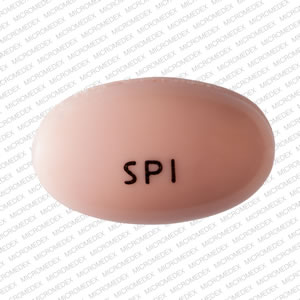Lubiprostone Side Effects
Medically reviewed by Drugs.com. Last updated on Nov 22, 2024.
Applies to lubiprostone: oral capsule liquid filled.
Precautions
It is very important that your doctor check your progress at regular visits to make sure that this medicine is working properly and to check for unwanted effects.
Dizziness, lightheadedness, or fainting may occur, especially when you get up suddenly from a lying or sitting position. These symptoms are more likely to occur when you begin taking this medicine or if you become dehydrated. Getting up slowly may help. Also, lying down for a while may relieve dizziness or lightheadedness.
Lubiprostone may cause difficulty with breathing, nausea, or severe diarrhea. If your symptoms and condition do not improve within a few days, or if they become worse, check with your doctor.
Serious side effects of lubiprostone
Along with its needed effects, lubiprostone may cause some unwanted effects. Although not all of these side effects may occur, if they do occur they may need medical attention.
Check with your doctor immediately if any of the following side effects occur while taking lubiprostone:
More common side effects
- diarrhea
- full or bloated feeling or pressure in the stomach
- nausea
- stomach pain
- swelling of the abdominal or stomach area
Less common side effects
- black, tarry stools
- blood in the stools
- chest discomfort or pain
- chills
- colds
- cough
- difficult or labored breathing
- fever
- general feeling of discomfort or illness
- headache
- increased sweating
- joint pain
- loss of appetite
- loss of bowel control
- muscle aches and pains
- runny nose
- shivering
- sore throat
- stomach discomfort
- sweating
- tightness in the chest
- trouble sleeping
- unusual tiredness or weakness
- vomiting
Incidence not known
- blurred vision
- confusion
- difficulty with swallowing
- dizziness, faintness, or lightheadedness when getting up suddenly from a lying or sitting position
- fainting
- fast, pounding, or irregular heartbeat or pulse
- hives or skin rash
- puffiness or swelling of the eyelids or around the eyes, face, lips, or tongue
- stomach tenderness
- swelling
Get emergency help immediately if any of the following symptoms of overdose occur while taking lubiprostone:
Symptoms of overdose
- dry heaves
- dry mouth
- feeling of warmth
- lack or loss of strength
- paleness of the skin
- redness of the face, neck, arms, and occasionally, upper chest
- severe, unusual tiredness or weakness
- weight loss
Other side effects of lubiprostone
Some side effects of lubiprostone may occur that usually do not need medical attention. These side effects may go away during treatment as your body adjusts to the medicine. Also, your health care professional may be able to tell you about ways to prevent or reduce some of these side effects.
Check with your health care professional if any of the following side effects continue or are bothersome or if you have any questions about them:
More common side effects
- excess air or gas in the stomach or intestines
- passing gas
Less common side effects
- belching
- bladder pain
- bloody or cloudy urine
- change in taste
- cold sweats
- difficult, burning, or painful urination
- difficulty with moving
- discouragement
- dizziness
- fear or nervousness
- feeling sad or empty
- frequent urge to urinate
- heartburn
- increased weight
- indigestion
- irritability
- loss of interest or pleasure
- loss of taste
- lower back or side pain
- muscle cramps
- muscle stiffness
- stomach upset
- swollen joints
- tingling of the hands or feet
- unusual drowsiness, dullness, tiredness, or feeling of sluggishness
See also:
For healthcare professionals
Applies to lubiprostone: oral capsule.
Gastrointestinal adverse events
- Very common (10% or more): Nausea (up to 29%), diarrhea (up to 12%)
- Common (1% to 10%): Abdominal pain, abdominal distention, flatulence, vomiting, loose stools, abdominal discomfort, dyspepsia, dry mouth
- Frequency not reported: Intestinal functional disorder, constipation, eructation, fecal incontinence, defecation urgency, frequent bowel movements, gastroesophageal reflux disease, gastritis, hard feces, rectal hemorrhage, pollakiuria
- Postmarketing reports: Ischemic colitis[Ref]
Nervous system
- Very common (10% or more): Headache (up to 11%)
- Common (1% to 10%): Dizziness
- Uncommon (0.1% to 1%): Syncope
- Frequency not reported: Dysgeusia, tremor, lethargy[Ref]
Cardiovascular
- Common (1% to 10%): Palpitations, hot flush
- Postmarketing reports: Tachycardia/increased heart rate, hypotension[Ref]
Dermatologic
- Common (1% to 10%): Hyperhidrosis
- Frequency not reported: Cold sweat, erythema
- Postmarketing reports: Rash/urticaria[Ref]
Other
- Common (1% to 10%): Edema, fatigue, chest discomfort/pain, peripheral edema
- Frequency not reported: Influenza, pain
- Postmarketing reports: Malaise, asthenia, swelling[Ref]
Respiratory
- Common (1% to 10%): Dyspnea
- Frequency not reported: Pharyngolaryngeal pain, cough
- Postmarketing reports: Throat tightness[Ref]
Musculoskeletal
- Uncommon (0.1% to 1%): Muscle spasms
- Frequency not reported: Muscle cramps, joint swelling, myalgia, fibromyalgia[Ref]
Genitourinary
- Frequency not reported: Urinary tract infection[Ref]
Hepatic
- Frequency not reported: Increased ALT and AST[Ref]
Metabolic
- Frequency not reported: Electrolyte imbalance, decreased appetite, decreased blood potassium, increased weight, anorexia[Ref]
Psychiatric
- Frequency not reported: Anxiety, depression[Ref]
Hypersensitivity
- Postmarketing reports: Hypersensitivity/allergic-type reactions[Ref]
References
1. (2006) "Product Information. Amitiza (lubiprostone)." Sucampo Pharmaceuticals Inc
Frequently asked questions
More about lubiprostone
- Check interactions
- Compare alternatives
- Pricing & coupons
- Reviews (281)
- Drug images
- Dosage information
- During pregnancy
- Drug class: chloride channel activators
- Breastfeeding
- En español
Patient resources
Other brands
Professional resources
Other brands
Related treatment guides
Further information
Lubiprostone side effects can vary depending on the individual. Always consult your healthcare provider to ensure the information displayed on this page applies to your personal circumstances.
Note: Medication side effects may be underreported. If you are experiencing side effects that are not listed, submit a report to the FDA by following this guide.

